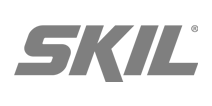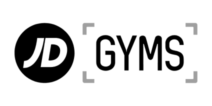The value of FAQs has often been contentious (and not always because so many websites call them FAQ’s).
- Content marketers like them because they have provided pages for easy additional content that Google might like.
- For web designers, they have provided a place for important information that nobody is quite sure where it fits.
- Consumers like them because they cut through the flannel and get right to the point.
In short, historically, they have been used to mitigate failings, and have maybe even facilitated them. Good UX website design and copywriting should negate the need for any of the above reasons.
Now, they’re starting to find their true calling. Because there’s a way of using FAQs that can improve organic search results, quickly and effectively.
What is Schema?
In lay terms, Schema is code that organises content or data. It is also called structured data, because it provides a framework for the way information is presented. It is this framework that Google likes – it doesn’t have to work hard to understand what is on a page.
And the less Google has to work at understanding something, the easier and quicker it can categorise it. Google also recognises that this framework is useful for users too, making it easy and quick to find the information they want.
Importantly, it tells Google what your content means, not just what it says. It shows context.
Examples of FAQ Schema
Here’s an example of FAQ Schema in a SERP for ‘schema’. Look at the ‘People also ask’ section after the #1 position; this is an expandable list of curated FAQs from various websites that have Schema-related content that Google likes. Each of these has been chosen by Google to answer a question you might have as you explore this topic.
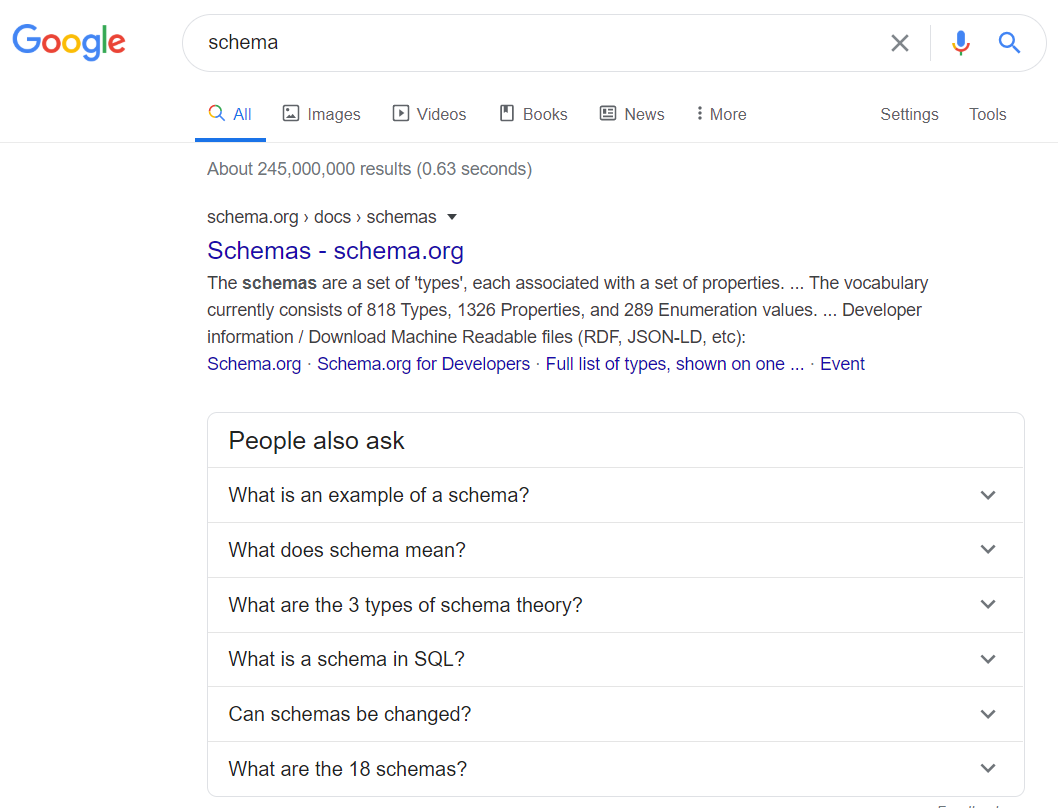
It’s also possible that Google likes one website so much for a particular topic/keyword that it will display an entire set of your FAQs. Look at all the real estate in this example! (And how it expands!)
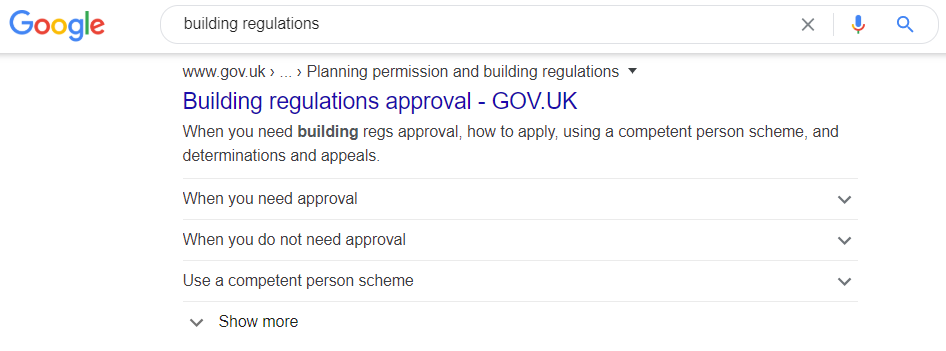
FAQs are only one example of the bigger Schema picture, but let’s stick with them for this case study.
One of our clients in a competitive sector had suffered a slump in rankings for certain keywords after the swathe of Google algorithm updates earlier this year. Our brainstorming session revealed a number of possible remedies – like refining H1s and H2s to target keywords, creating new content, and so on.
One idea that was floated and almost dismissed off the bat was FAQs – because everyone there agreed, as I’ve pointed out above:
Good UX website design and copywriting should negate the need for any of the above reasons.
It wasn’t until one perceptive member of our Performance Team pointed out that Google likes Schema and it can be used with FAQs, that we had our lightbulb moment.
For our strategy to regain lost ground, we were able to plan content around keywords and link to relevant sections of the client’s website, where users entered the conversion flow.
This URL is an important factor in Schema success – you won’t get the traffic if you don’t have a link. You can use more than one, but don’t overdo it.
FAQs are not the only Schema
There are, in fact, many types of Schema structured markup you can use. Some will be more relevant and workable than others for you.
For example, the Schema below (a how-to) takes you through the key steps of starting a business. The real estate underneath is FAQ Schema curated from other sources.
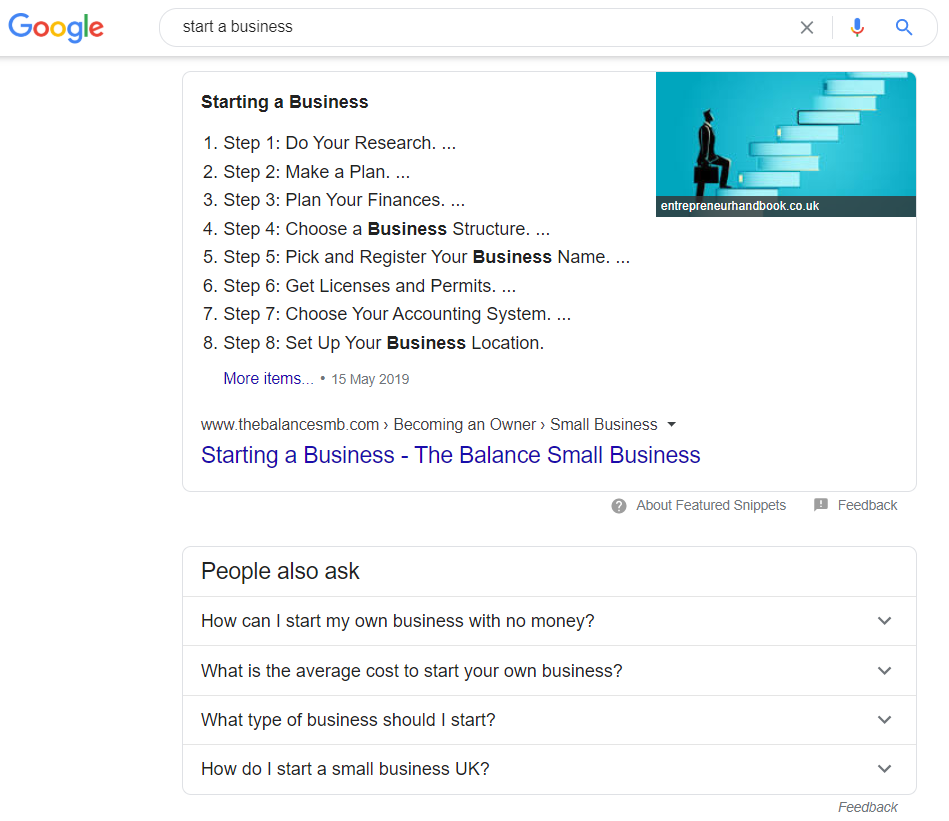
There are Schemas for books, critic reviews, carousels, events, job postings, movies, products, recipes and much more.
Why Google loves Schema
The bots that crawl your website (metadata, page copy and links) used to have a relatively small number of sites to visit. But the web got bigger and now they have to work harder and faster.
Without Schema, they have to make assumptions and judgement calls about the information on your page and what it refers to. Assumption doesn’t give the bot confidence that they are right.
How confident am I that this page matches the query topic?
How confident am I that this page matches the query intent?
How confident am I that this site is trustworthy?
How confident am I that this page is relevant for this user’s location?
How confident am I that this page provides a good user experience?
How confident am I that this page is relevant for this user’s demographic/profile?
Google Bot
The questions above are those that Schema helps the bot with. Schema gives it:
- Confidence it can use this page to match the query topic and query intent
- Confidence to judge trustworthiness and relevance to the user’s location.
Takeaways
Schema is winning at SEO right now because Google will reward your Schema with a top ranking position and/or enhancement with extended real estate. It helps brands stand out, and quickly. In some cases, we’ve seen clients start to rank highly and with this enhanced real estate within 10 days.
We started out our adventures with Schema using just FAQs (though we’ve since expanded to using other relevant types). Pointing users back to the relevant topic page on your website is an essential tactic, and keyword your link text for the best results.
Best get on this before everyone finds out.
To protect our client’s identities, we haven’t referenced any in this blog. The sample images of Schema don’t refer to any of our clients. Additional input by our Audience Performance Manager Kevin Robinson. Photo by Ellie Burgin on Pexels.
-
 21.07.2019|Page speed affects everything from bounce rates to e-commerce transactions and your brand’s position in SERPs. But who is responsible for doing something about it?
21.07.2019|Page speed affects everything from bounce rates to e-commerce transactions and your brand’s position in SERPs. But who is responsible for doing something about it? -
 16.09.2021|How poor user experience online impacts your business objectives
16.09.2021|How poor user experience online impacts your business objectives -
 09.07.2021|Learn how organic search or SEO is key for your business and works with CRO marketing to increase visibility, traffic, conversions and sales.
09.07.2021|Learn how organic search or SEO is key for your business and works with CRO marketing to increase visibility, traffic, conversions and sales.
We have a lot to talk about.
ScrapbookDoor4 opinions and insight - our articles features and ramblings.
We explore performance marketing, AI, communications and optimisation.









